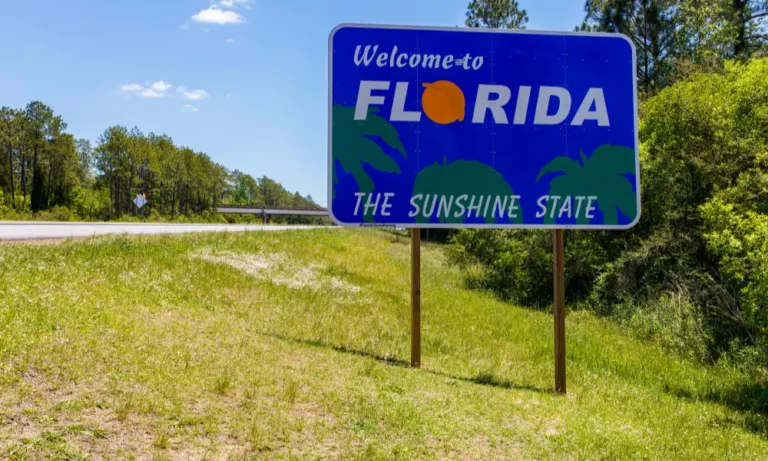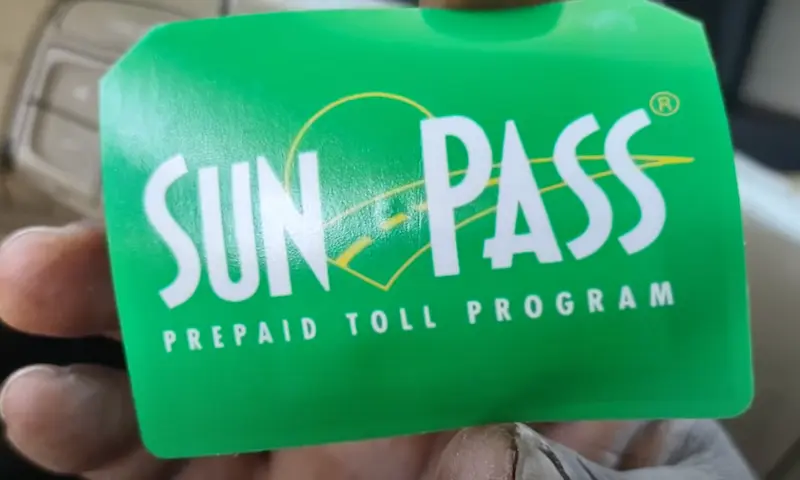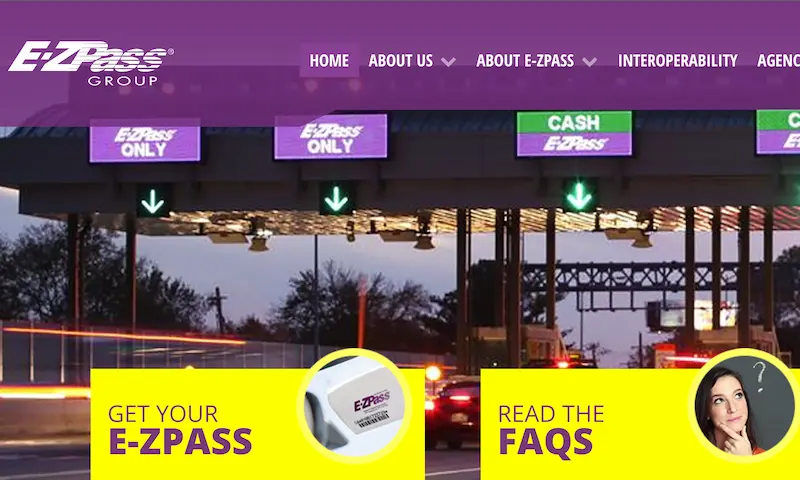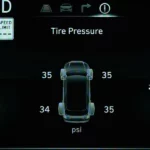Ever driven through a toll plaza in Florida only to realize you didn’t have cash or your SunPass wasn’t working? You’re heading into florida toll violation territory – and it can get expensive fast. This guide breaks down everything from how violations happen to what you can do if you receive one in the mail.
What Is a Florida Toll Violation?
A florida toll violation occurs when you drive through a toll booth or plaza without paying the required fee. Since 2007, these violations are classified as noncriminal traffic infractions punishable as moving violations – a step up in seriousness from their previous classification.
Under Florida Statute §316.1001, any driver who fails to pay a prescribed toll commits this infraction. What many drivers don’t realize is that the violation is typically issued to the registered owner of the vehicle, not necessarily the person driving at the time.
Florida’s Toll Collection Methods
Florida has largely moved away from traditional toll booths with attendants collecting cash toward electronic systems that make paying—and tracking violations—more efficient:
- SunPass and E-PASS: These prepaid transponder systems offer about 25% savings compared to other payment methods
- TOLL-BY-PLATE: Cameras capture your license plate as you drive through, and a bill is mailed to the registered owner
- Cash payment: Still available at some plazas but becoming increasingly rare
One major restriction to note: TOLL-BY-PLATE cannot be used in Florida’s express lanes. If you use these managed lanes without a proper transponder, you’ll face a hefty $25 daily violation charge on top of standard penalties.
How Florida Toll Violations Happen
Toll violations typically occur in one of these scenarios:
- You drive through a toll plaza without stopping to pay
- Your SunPass or E-PASS account has insufficient funds
- Your transponder is improperly mounted or malfunctioning
- Your license plate information isn’t correctly linked to your toll account
- You’re visiting Florida and unfamiliar with the toll system
The Violation Process: From Notice to Penalties
When you miss a toll payment, a systematic process begins that can escalate quickly if ignored:
Initial Notification
The first step is typically a Toll Enforcement Invoice sent to the registered vehicle owner’s address. This document includes:
- The unpaid toll amount
- A $2.50 administrative charge
- Payment options and deadlines
- Instructions for disputing the charge
What Happens If You Ignore the Invoice
Ignoring that first notice is where things get expensive. Here’s the typical escalation:
- A second notification with additional administrative fees (usually another $2.50)
- Referral to a collection agency
- A registration hold (or “Registration Stop”) preventing you from renewing your vehicle registration
- Possible driver’s license suspension
Financial Penalties for Florida Toll Violations
The costs of toll violations can add up quickly:
| Violation Stage | Financial Penalty |
|---|---|
| Initial invoice | Unpaid toll + $2.50 administrative fee |
| Court payment (within 30 days) | $30 + unpaid toll amount |
| Court adjudication (if found guilty) | $100 mandatory fine + unpaid toll |
| Express lane violation | $25 daily violation charge |
License and Registration Consequences
Beyond the financial impact, toll violations can affect your driving privileges:
- Points on your license: If found guilty in court, 3 points are assessed on your driver’s license
- Registration hold: You won’t be able to renew your vehicle registration until all tolls and fees are paid
- License suspension: Failure to pay civil penalties can result in a suspended license
- Habitual offender status: Multiple violations may lead to classification as a habitual traffic offender
- Insurance increases: Those 3 points can bump up your insurance premiums significantly
How to Pay a Florida Toll Violation
If you’ve received a toll violation, you have several payment options:
Online Payment
Most toll authorities offer online payment systems through their websites. For SunPass violations, visit their online portal where you can search for your invoice using your license plate number.
Other Payment Methods
- By mail: Send a check or money order to the address listed on your violation notice
- By phone: Call the number on your violation notice for automated payment options
- In person: Visit a SunPass service center or your county tax collector’s office
Contesting a Florida Toll Violation
Believe the violation was issued in error? You have options:
Valid Reasons to Contest a Violation
- You paid the toll but were incorrectly cited
- The vehicle was sold before the violation occurred
- Your license plate was stolen or duplicated
- You were not the driver and can prove it (for leased vehicles)
How to Contest
- Follow the dispute instructions on your violation notice
- Gather evidence supporting your claim (receipt of payment, vehicle sale documents, etc.)
- Submit your dispute through the SunPass dispute portal or as directed on your notice
According to legal professionals, a high percentage of contested toll violation cases are dismissed in court, particularly when represented by experienced traffic attorneys.
What If You’re a Tourist Who Gets a Toll Violation?
Florida sees millions of tourists each year, and many end up with unexpected toll violations. If you’re visiting and receive a violation:
- Pay it promptly to avoid escalation
- If you’re in a rental car, check your rental agreement – the company may automatically charge toll violations to your credit card, often with additional processing fees
- Some rental companies offer toll packages you can purchase in advance
How to Prevent Florida Toll Violations
Get a SunPass or E-PASS
The most reliable way to avoid violations is to use Florida’s electronic toll payment systems:
- Purchase a SunPass transponder online or at many retail locations throughout Florida
- Keep your account funded with automatic replenishment
- Ensure your license plate information is current in your account
- Mount the transponder properly on your windshield
Maintain Your Vehicle Registration
Keep your vehicle registration current with the Florida Department of Highway Safety and Motor Vehicles:
- Update your address when you move
- When selling your vehicle, properly transfer the title and return your license plates
- If your plate is lost or stolen, report it immediately
Plan Your Routes
- Before traveling in Florida, research which roads have tolls
- Use mapping apps that show toll roads and offer toll-free alternatives
- Budget for tolls as part of your travel expenses
What to Do After Selling Your Car
To prevent being held responsible for toll violations after selling your vehicle:
- Return your license plates to a Florida motor vehicle service center
- Complete the required paperwork for title transfer
- File a Notice of Sale with the DHSMV
- Keep copies of all sale documentation
If you receive a toll violation for a car you’ve sold, you’ll need to submit documentation proving the sale predated the violation.
Understanding Express Lane Violations
Florida’s express lanes have special rules and steeper penalties:
- Only vehicles with properly mounted SunPass or other Florida-compatible transponders can legally use express lanes
- There is no TOLL-BY-PLATE option for express lanes
- Violations carry a $25 daily penalty in addition to standard toll violation penalties
- Multiple express lane violations can lead to increased penalties and points
Dealing with Registration Holds
If you’ve discovered a registration hold due to unpaid toll violations:
- Request a listing of all outstanding violations from the Florida Department of Highway Safety and Motor Vehicles
- Pay all outstanding tolls and fees
- Get a clearance letter or receipt showing payment
- Visit your local tax collector’s office with proof of payment to have the hold lifted
Out-of-State Drivers and Florida Toll Violations
Florida has reciprocity agreements with many states regarding toll violations. This means:
- Your home state may enforce Florida toll violations
- Unpaid Florida toll violations could prevent you from renewing your license or registration in your home state
- Collections agencies may pursue payment across state lines
Commercial Vehicles and Toll Violations
For commercial vehicles, toll violations carry additional concerns:
- Toll costs are typically higher for commercial vehicles based on axle count
- Companies with fleets can face substantial penalties for multiple violations
- Fleet management services like Bestpass can help manage and dispute toll charges
The Legal Landscape of Florida Toll Enforcement
Florida’s toll enforcement system operates under specific statutes:
- Florida Statute §316.1001 defines toll violations and establishes them as moving violations
- Under Florida Statute §318.18, specific penalty amounts are prescribed
- The Florida Turnpike Enterprise and regional expressway authorities have additional administrative rules governing toll collection and enforcement
These laws create a comprehensive system designed to maintain Florida’s extensive toll road network, which is primarily financed through user fees rather than general tax revenue.
When Florida Toll Violations Go to Collections
If your violation reaches collections:
- The debt will likely appear on your credit report
- You may face additional collection fees
- The collection agency may be persistent in contacting you
- You still have the right to dispute an erroneous violation
To resolve a collection issue, contact either the toll authority or the collection agency directly to arrange payment or present evidence that the violation was issued in error.
The Technology Behind Toll Enforcement
Florida uses sophisticated technology to detect and process violations:
- High-speed cameras capture license plates at toll points
- Automated systems match plates to registered owners
- Electronic transponder readers detect SunPass and E-PASS devices
- Data processing systems generate and mail violation notices
This automation makes the system efficient but occasionally leads to errors that may require driver intervention to correct.
















